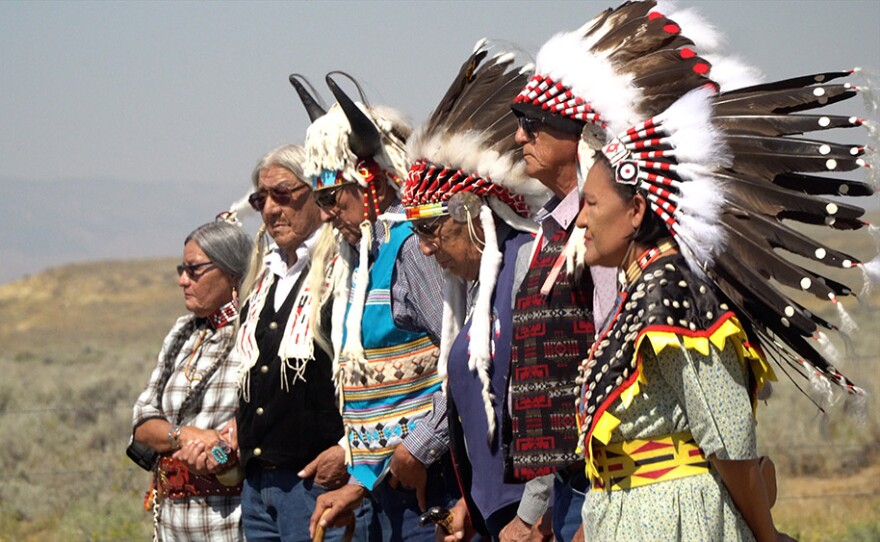Premieres Tuesday, Nov. 23, 2021 at 9 p.m. on KPBS TV / On Demand
In the late 19th century, tens of thousands of Native American children were removed from their families and tribal homelands to boarding schools where they were stripped of their languages, traditions, and culture, in the name of assimilation. It is a painful era for Indigenous peoples across the country not often covered in U.S. history books, but comes to light now in “Home from School: The Children of Carlisle,” a new documentary premiering on PBS’s INDEPENDENT LENS.
“Home From School: The Children of Carlisle” dives into the history of Carlisle Indian Industrial School in Carlisle, Pennsylvania, the first off-reservation government-funded boarding school for Native American children.
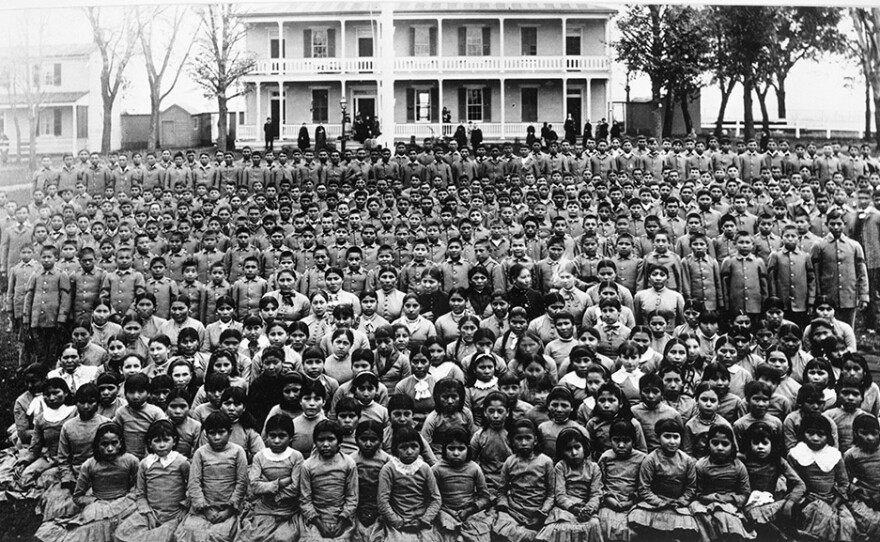
The film chronicles the modern-day journey of Northern Arapaho tribal members seeking to recover the remains of Arapaho children more than 100 years after they fell mortally ill and were buried on the school grounds. That cemetery is now located on land owned by the U.S. Army War College. The driving force behind the repatriation efforts is Yufna Soldier Wolf, great-granddaughter of Sharp Nose, the last War Chief of the Northern Arapaho.
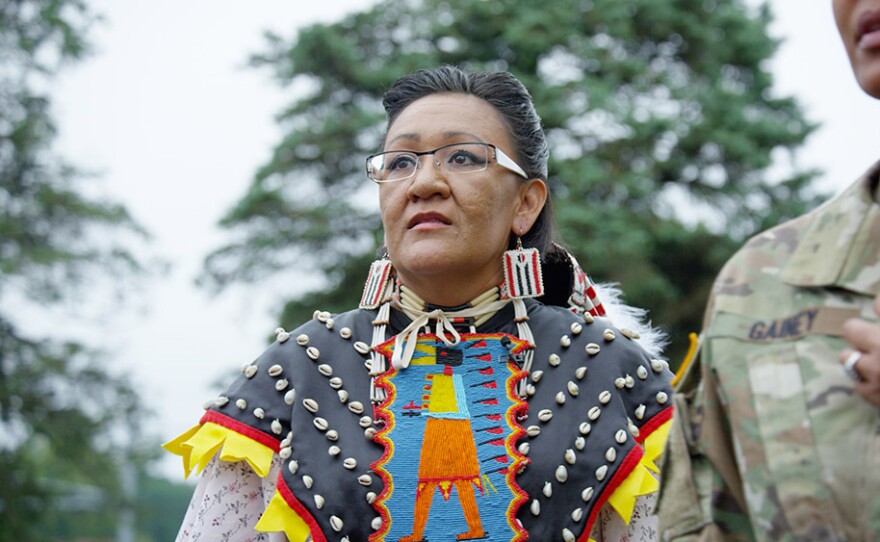
One of Sharp Nose’s sons, a great uncle to Yufna Soldierwolf, died at Carlisle in 1883. The film follows Northern Arapaho tribal members — elders and teenagers — as they travel from the Wind River Reservation in Wyoming to Pennsylvania to retrieve the remains of three children who died at Carlisle Indian Industrial School in the 1880s.
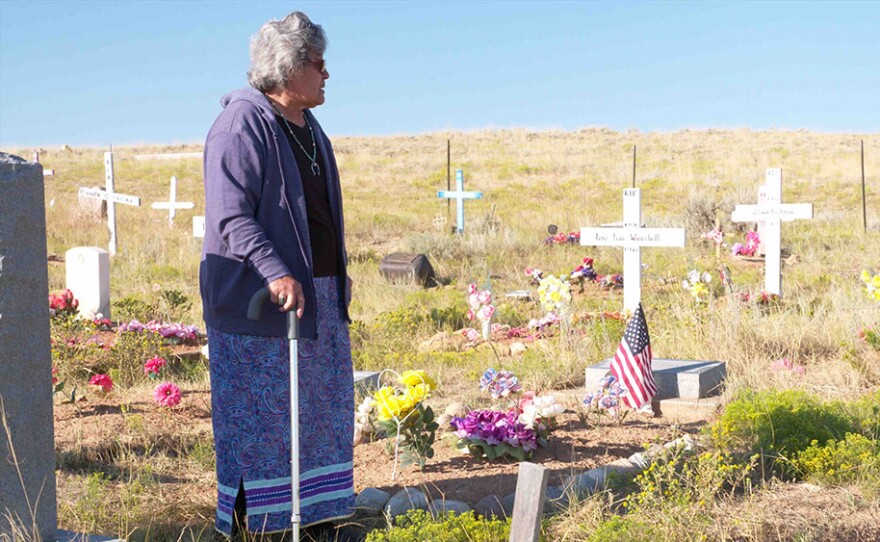
During this era at Carlisle, Native American children were stripped of their tribal identities and forced into an English-only, militarystyle remedial education. Many boarding school students returned to their tribes emotionally scarred and culturally unrooted; their trauma has echoed down the generations.
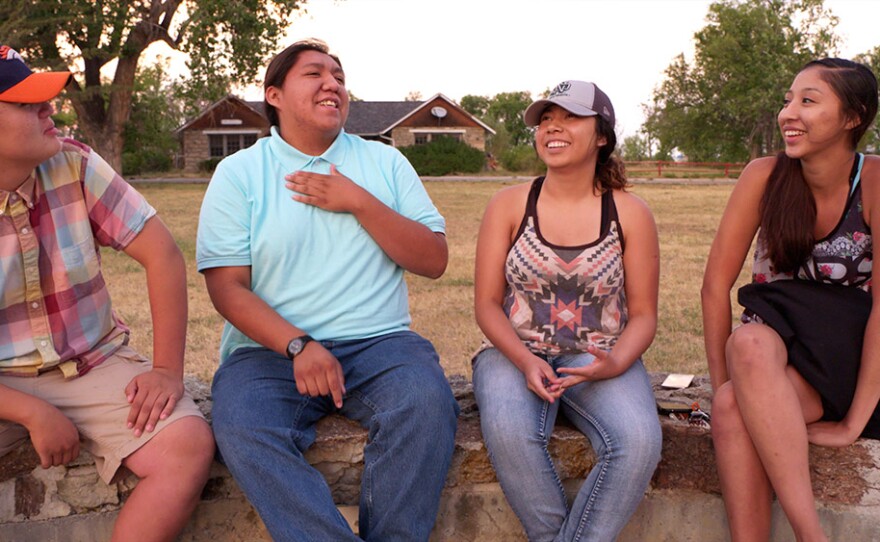
Many other students, however, never returned home, having died at school, often of European-introduced diseases their bodies could not fend off. Filmmaker Geoffrey O’Gara travels alongside the tribal members as they visit the Carlisle burial site of the children they lost. The efforts of the Northern Arapaho are further stymied during this visit when graves are misidentified, and the wrong remains disturbed.
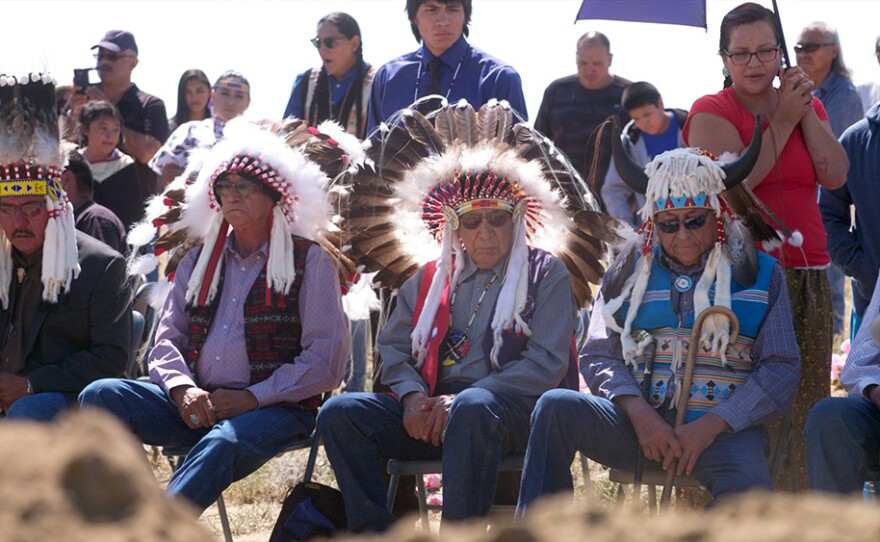
After overcoming decadeslong resistance to repatriation by the U.S. Army and enduring an emotional visit to the Carlisle burial site, the Northern Arapaho became the first tribe in the U.S. to successfully return their children’s remains from a U.S. government-run Native American boarding school.
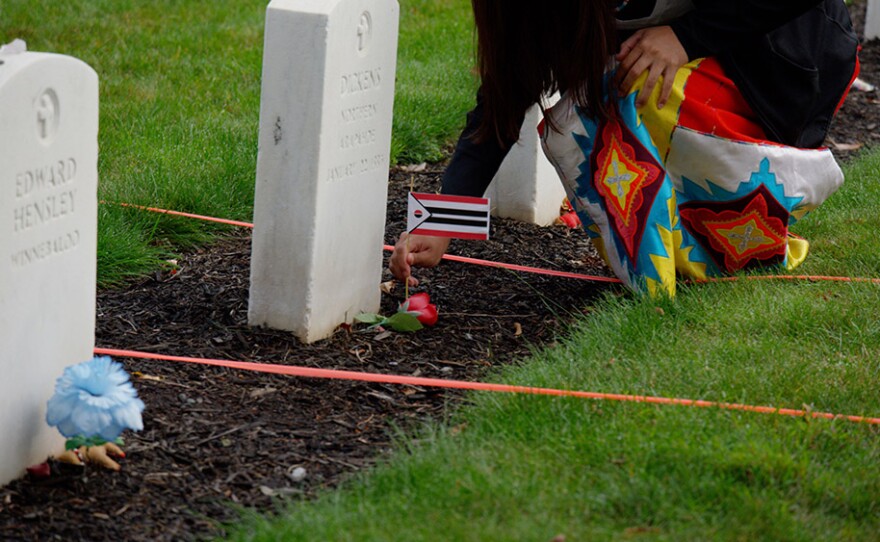
Filmmaker Quotes:
“These pages are missing from American history books, despite or perhaps because it was a huge program of what some scholars have called ‘cultural genocide’,” said Producer/Director Geoffrey O’Gara. “It was a brave and generous act to let cameras into such personal moments. In return, we’ve tried to let viewers see things from the perspective of the tribe, which is multifaceted when you’ve got elders who once worked in the fields at a mission school, young adults with graduate degrees, and youngsters at an Indian-run public high school today.”
“This story was brought to us by the people who lived it — the Eastern Shoshone and Northern Arapaho people whose ancestors experienced the harshest boarding schools,” said Jordan Dresser, an associate producer of the film and currently Chairman of the Northern Arapaho Business Council. “It’s their story, told in their voices, and they shared it because they wanted young people to learn from it, and have a better future.”

Watch On Your Schedule:
This episode will be available simultaneously with the broadcast on the INDEPENDENT LENS website, PBS.org and the PBS Video App.
Extend your viewing window with KPBS Passport, a benefit for members supporting KPBS at $60 or more yearly using your computer, smartphone, tablet, Roku, AppleTV, Amazon Fire or Chromecast. Learn how to activate your benefit now.
Join The Conversation:
INDEPENDENT LENS is on Facebook, Instagram, and you can follow @IndependentLens on Twitter. #IndieLensPBS
Credits:
Producer, Director, Writer: Geoffrey O’Gara. Producer: Sophie Barksdale. Executive Producers: Sally Jo Fifer and Lois Vossen. INDEPENDENT LENS is presented by ITVS.
The film comes as U.S. Secretary of the Interior Deb Haaland announced a Federal Indian Boarding School Initiative in June 2021. This initiative entails a comprehensive review of the troubled legacy of federal boarding school policies, as depicted in the film, and was designed to develop processes and procedures for protecting identified burial sites at or near school facilities and the identities and tribal affiliations of children interred at these locations. Both the film and this initiative share a common goal, to forge a path that heals Native American generational wounds. In addition to its support from ITVS, the film also received funding from Vision Maker Media, a member of the National Multicultural Alliance.

